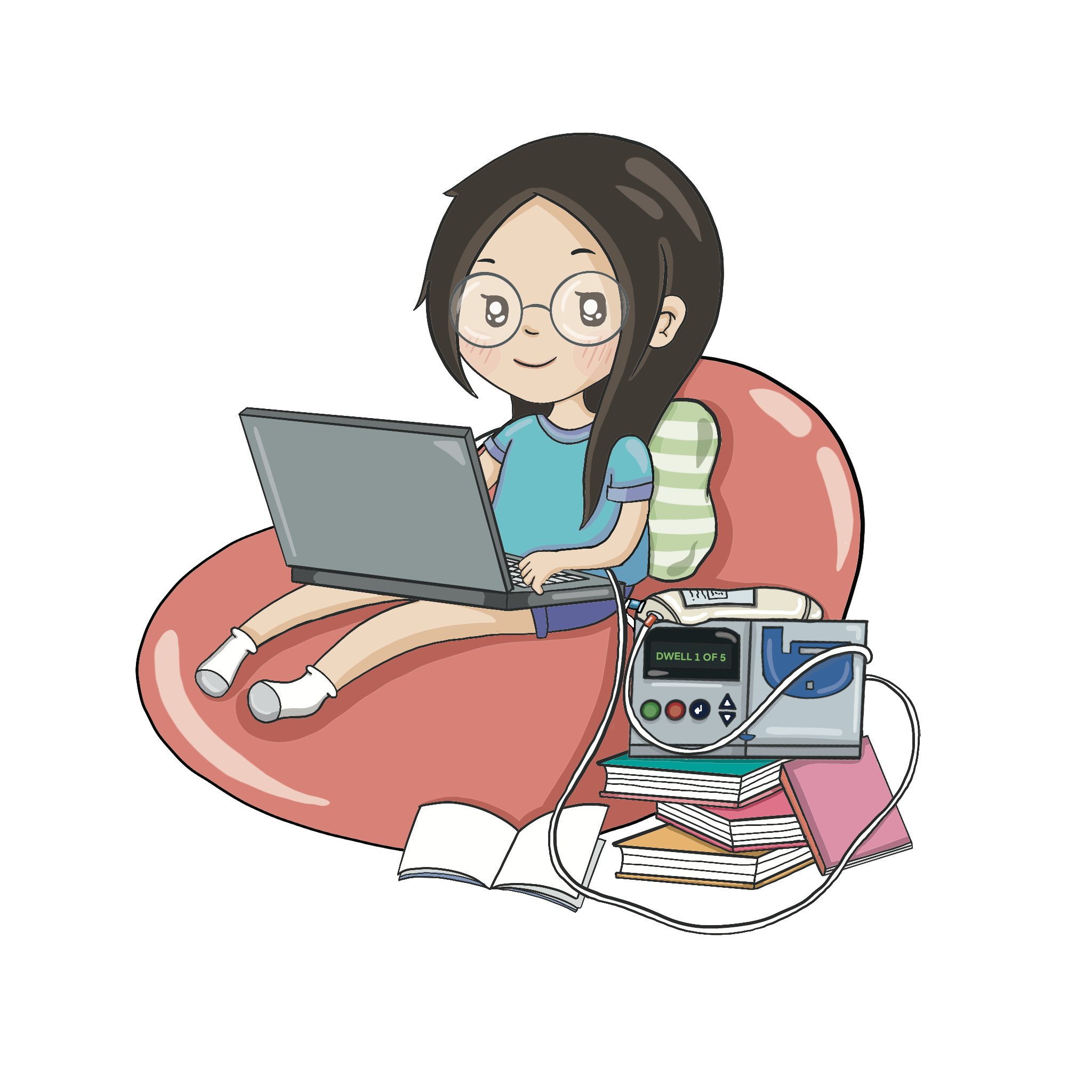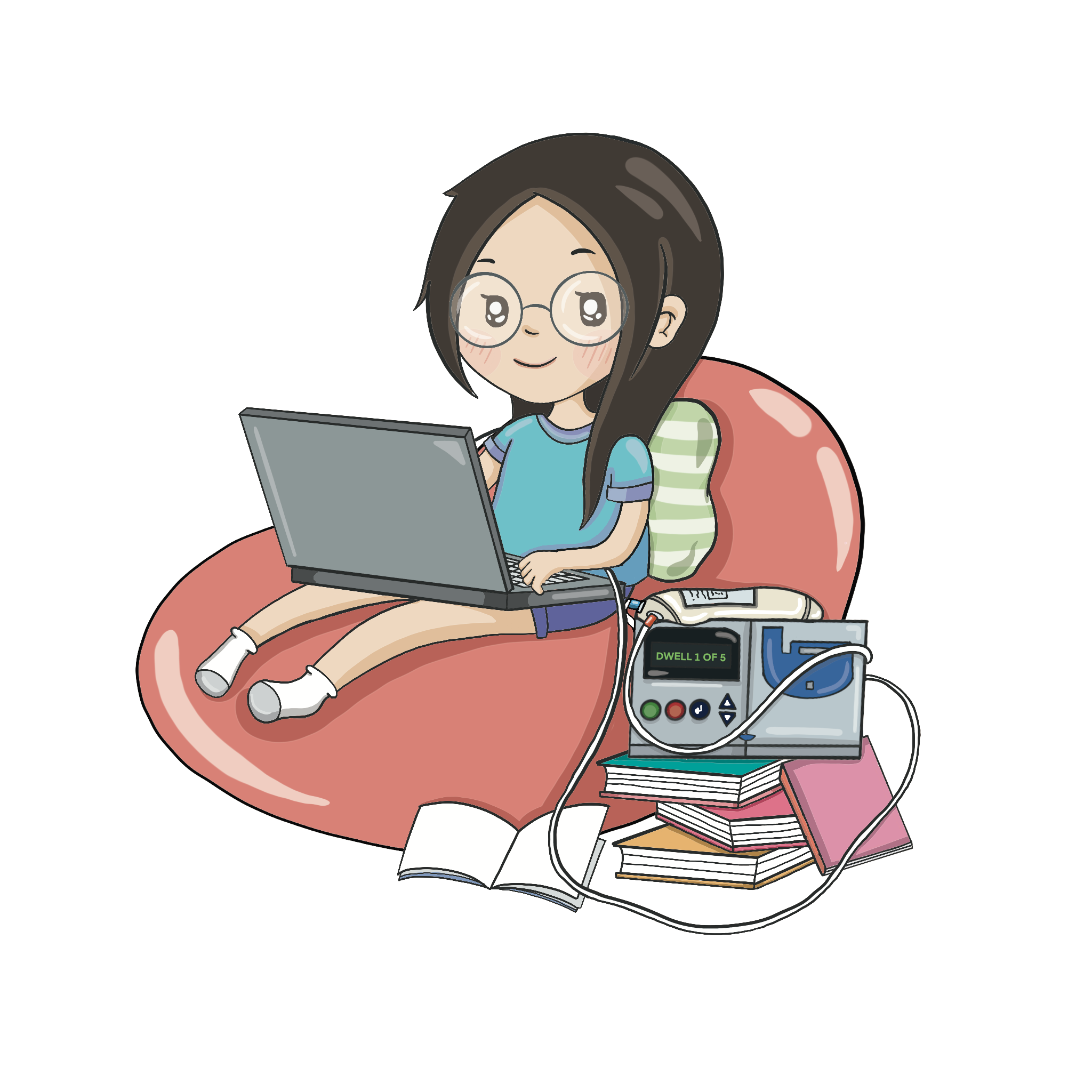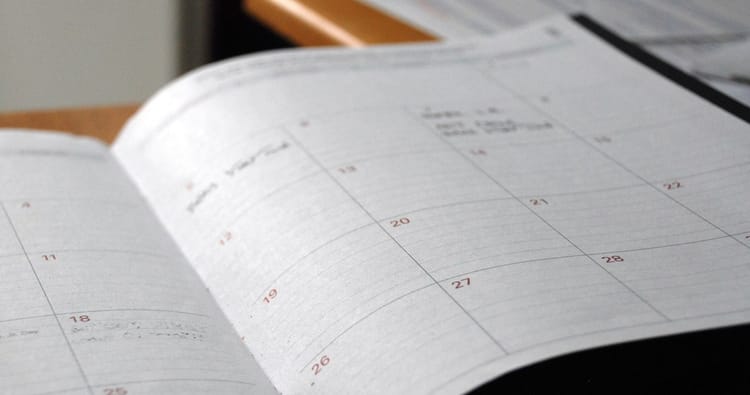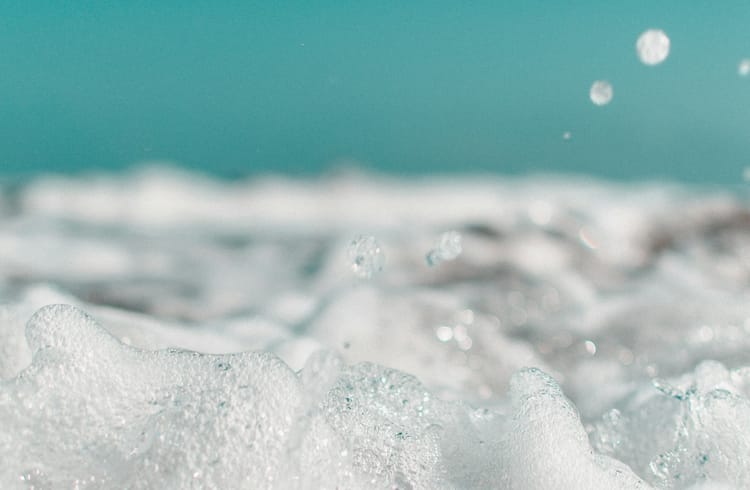Introducing the Renal Dietician to your Dialysis Medical Team!

Dieticians in the NHS are a rare sighting but renal dieticians have always felt like finding stardust. Throughout my chronic kidney stages, I had never even heard of a renal dietician, let alone thought about requesting a referral from my GP.
But having crash landed in the Renal Wards at hospital, one day I wake up and find a lovely renal dietician at my bedside as I am plugged in on the dialysis.
Congratulations! An achievement unlocked at Stage 5 (End Stage Renal Failure): the elusive Renal Dietician.
My Diet on Home Peritoneal Dialysis
I shall preface that every individual on dialysis will have their own dietary requirements for their own health needs! Nutrition for renal patients is complicated business and highly specialised to the individual so please take everything I say with a pinch of salt (there's a dialysis joke there that I should exploit)
- Low Salt Diet
- Low Phosphate (but high protein)
- Low Potassium
To break it down simply:
A Low Salt Diet is required because my kidneys are at EGFR 4, and the kidneys are an important part of regulating your blood pressure. In the CKD stages high blood pressure slowly damages the kidneys, which further pushes up your blood pressure and this cycle continues until kidney failure, which is where I landed. Once you're on dialysis and your kidneys are gone, you are now controlling your blood pressure to keep your eyes, heart and pretty much every other organ safe now that your kidneys have packed it in. Unfortunately, the machine you're relying on doesn't produce the hormones that your kidney did to regulate your BP, which is why I personally take at least 5 blood pressure related tablets a day!
A Low Phosphate Diet is required because my kidneys no longer able to process phosphates from foods and my Peritoneal Dialysis machine does not efficiently remove it either! Hence, I take phosphate binders with my meals to help reduce the absorption of phosphate in my body. I am told it is typically found in protein rich foods! You'd think just eliminate all the protein in my diet, but you'd be wrong because the dietician also tells you that you need to eat more protein because the dialysis machine is very effective in removing protein which you need to build and repair muscles. You can start to see the dilemma here.
And finally luckily for me, the lowest priority for me is a Low Potassium Diet. I am so grateful that my body or dialysis (I am not sure) is good at processing potassium. This is to protect the heart, an organ I'd like to keep until I die, I feel like I have a much stronger connection to it than my kidneys. My kidneys and I fell out in 2020, they just decided to give up in the height of the pandemic and I've never forgiven them since.
"not prescriptive"
So as you can see the Renal Dietican is the great mage or wizard that will not only explain to your blood results that those doctors and nurses have been sucking out of you since you first turned up at the hospital but will also help you build your diet plan and monitor your progress. Note I say "help build", much like any magical counsel on any enduring quest, they do not give any prescriptive diet plans but rather advice in broad strokes on how to plan your meals, leaving to you to find creative solutions to meet your dietary needs.
How do I find a renal dietician?
I never had any luck receiving a referral for a renal dietician before I went onto dialysis. However, once on dialysis, the renal dietician becomes a core member of your health team. Their involvement is typically more hands on at the start of your dialysis journey, particularly as you transition to home living but will eventually progress to annual check ins via telephone as you adjust and settle into a routine.
I am on Chronic Kidney Disease Stages 1/2/3/4, do I need to see a Renal Dietician?
There is a lot of information on the internet and it can be overwhelming and confusing and unfortunately there does not seem to be much discrimination between what is meant for Dialysis patients in Stage 5 and those in earlier stages of CKD when you still have functioning kidneys! Hopefully, from this post you can appreciate the massive impact of what your kidneys do when they even half function.
My understanding (as a patient not a doctor!) is that the fret and panic I had a CKD stage 3/4 patient to maintain a renal diet was overexaggerated and not explained well by my doctors. What I needed to do was to control my salt intake. Go on a low salt diet - reduced processed foods and no added salt to meals. This is my biggest advice to early CKD patients, your kidneys will do the rest. However, of course, always seek advice from your doctors first.
Hopefully you can now appreciate just how specialized renal diets can be to each individual based on their blood results, kidney function and effectiveness of dialysis. Hence, their high demand by dialysis patients for renal dieticians.
I wish you well on your dialysis journey. :)
Members only -
1. How often does my renal dietician speak to me?
2. What does a typical renal dietician appointment include?
3. Am I struggling to eat on the Renal Diet?





